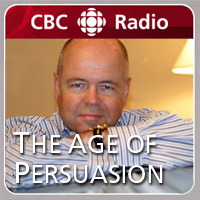You may have seen fragments of video footage from the siege on the capital; hit play on the embedded podcast below to hear from the reporters who were inside.
Naomi Klein on Q
Author/activist Naomi Klein on Q critiquing the Toronto Internation Film Festival’s spotlight on Tel Aviv. Filmmaker Simcha Jacobovici takes up the other side.
A political and artistic debate is being waged at this year’s Toronto Film Festival. An open letter of protest from the Toronto Declaration protests TIFF’s City-to-City Spotlight, which is focussing on the work of Israeli filmmakers from Tel Aviv. The signatories, which include Q guest Naomi Klein, actor Harry Belafonte, Jane Fonda and writer Rawi Hage, argue TIFF is complicit in Israel’s Rebranding campaign that aims to shift emphasis away from the occupation, especially in a year where the conflict in Gaza resulted in over 1,000 deaths of Palestinians. TIFF denies any ideological pressure was applied. On the other side of the debate, filmmakers like Q guest Simcha Jacobovici, David Cronenberg, Ivan Reitman, and Robert Lantos argue that judging films by their country of origin rather than the quality of the artistic product, is a kind of censorship.
Noami explains that the letter is not about politics and censorship but about trying to separate the propaganda from the films:
“We’re not asking for anything—that’s what’s so amazing. The reports today, in response to the statements from Norman Jewison and David Cronenberg, are kind of amazing to me because they’re all denouncing censorship. I’m against censorship. I’m not trying to censor anything. None of the thousand people who signed this letter are trying to censor anything. Even on CBC, sorry to say, they are reporting that we have a problem with the ten films. We have no problem with these ten films. I have seen some of the films—I think they are terrific and I think they are so good they deserve to be part of the regular festival programming and not politicized as part of this celebration of the State of Israel, of the city of Tel Aviv, because that’s not about art, that’s about politics.
Princess and the Frog Trailer
Disney has released the trailer for its newest full length feature animation, The Princess and the Frog. It will be the animation studio’s 49th animated feature and the first traditional animation feature since Home on the Range — my least favorite Disney animation of all time. I’m hoping things have improved…
[Princess and the Frog Trailer – YouTube]
The new movie will add to Disney’s profitable princess franchise, and, more importantly, with directors John Musker and Ron Clements at the helm, I suspect it will have the kind craftsmanship and story that will make it worthy to become part of the Disney Classics canon.
Ron and John’s directing credits include: The Great Mouse Detective, The Little Mermaid, Aladdin, Hercules, and Treasure Planet. These guys have worked with the masters and, of course, are masters in their own right.
The Animation Podcast has a great interview with Ron and John in three parts.
This American Life on the Financial Crisis
If you’re confused about what caused the greatest financial crisis since the depression, let This American Life teach you in words you can understand, how the mortgage lending crisis started, with their episode The Giant Pool of Money and follow-up with their episode Another Frightening Show About the Economy in which we learn:
- How and why the credit markets froze?
- What are “credit default swaps” and how do they propagate hardship to every sector of the economy?
- Why aren’t “credit default swaps” regulated?
- What will the bailout do and is it a good thing?
If this interests you, you might also want to check out the NPR: Planet Money Podcast.
Update: Now there is a movie about all this (by Adam Davidson no less) called The Big Short. I highly recommend it.
Five must see open course video lectures
Since the introduction of open lectures by progressive thinking educational institutions like M.I.T., Stanford, Duke, Yale, and others, many exceptional presentations have bubbled to the top and should be watched.
Here are five must see open course video lectures as recommended by Virginia Heffernan of the NYTimes.
- Walter H. G. Lewin, Powers of 10, M.I.T. (At about 2:40 watch Power of Ten video that is cut from the lecture)
- Randy Pausch, Really Achieving Your Childhood Dreams, Carnegie Mellon
- Dan Ariely, Predictably Irrational, Duke and M.I.T. (the rest of his short clips)
- Langdon Hammer, Modern Poetry, Yale
- Christine Hayes, Introduction to the Old Testament (Hebrew Bible), Yale
I also recommend Mark Schlissel, Introduction – The Cell Theory, Bacteria, Animal Cells, Evolution (Viruses and Midochondria). (The good stuff starts at about 13:00).
I listened to about a quarter of all the lectures from this course—most of which were over my head, but the first and second (mp3) classes are fascinating and make me wish I studied biology at school.
Naomi Klien on HBO’s Real Time with Bill Maher
I went to the Naomi Klien speech at the U of L last Monday and was entertained and enraged (both at the same time) as she talked about the situations and events unfolding in the world right now and the influence that free market ideology has on the world at large. She also emphasized that new policy applied after a crisis has often been waiting for the opportunity, for people too shocked by the event to stand up against bad laws.
Here she is on HBO’s Real Time with Bill Maher (September 19):
[Naomi Klien on HBO’s Real Time with Bill Maher – YouTube]
She wrote an article for the Guardian last week which contained many of the points she made in her speech.
Continue reading “Naomi Klien on HBO’s Real Time with Bill Maher”
O’Reilly and the Age of Persuasion
 In his radio show, O’Reilly and the Age of Persuasion, Terry O’Reilly explores the countless ways marketers permeate your life—from art, media, and language, to politics, religion, and fashion—and he does it in a way that makes you crave episode after episode. You’ll never think about advertising the same way again.
In his radio show, O’Reilly and the Age of Persuasion, Terry O’Reilly explores the countless ways marketers permeate your life—from art, media, and language, to politics, religion, and fashion—and he does it in a way that makes you crave episode after episode. You’ll never think about advertising the same way again.
I highly recommend you subscribe to the unofficial O’Reilly and the Age of Persuasion podcast.
Update: Check out my interview with Terry and Mike.
Reverse Speech on WireTap
Lately I’ve been enjoying the Wiretap with Jonathan Goldstein podcast (official podcast). Today I listened to the November 25, 2007 episode: The New Josh, in which host Jonathan Goldstein interviews David John Oates, the world leader in Reverse Speech studies.
I’ve never been a believer in Freudian slips or subconscious communication, but it’s interesting to listen to Mr. Oates speculate that these kinds of behaviour happen all the time. It’s true that reverse speech sounds like a foreign language and can often even sound like English, but it would take an awful lot of research to convince me his results are anything more than a combination of coincidence and wishful thinking—nevertheless, listen to the interview and form your own opinion.
SXSW 2008 Podcasts
 Over the last few years I’ve been secretly dying to attend the annual new media festival in Austin, TX known as South by Southwest.
Over the last few years I’ve been secretly dying to attend the annual new media festival in Austin, TX known as South by Southwest.
My trip to Punta Cana this year took precedence but alas not all is lost because the fine folks at SXSW are releasing podcasts of all the Interactive panel sessions over the coming months. They’ve already got a few of them up.
Subscribe to the SXSW Interactive podcast feed.
Guitar Noise Podcast
 I just subscribed to the Guitar Noise Podcast. In the first episode, managing editor David Hodge goes through some of the basics of strumming. If you’re just learning the guitar, as I am—my parents gave me a guitar over the holidays, then I recommend you check it out.
I just subscribed to the Guitar Noise Podcast. In the first episode, managing editor David Hodge goes through some of the basics of strumming. If you’re just learning the guitar, as I am—my parents gave me a guitar over the holidays, then I recommend you check it out.
I hope that, as they get a little more familiar with the technology, they will take advantage of dividing their podcasts into chapters and then show relevant “artwork” such as a JPG of the strumming pattern or chords that they want you to hit. But as it stands now, it’s still a great example of using podcasts for teaching.
(Yes, I realize in order to use chapters the podcast needs to be in AAC format instead of mp3, but as an iTunes user, it’s a trade-off that works for me. Perhaps they could have two streams, a normal podcast and an enhanced m4a version.)